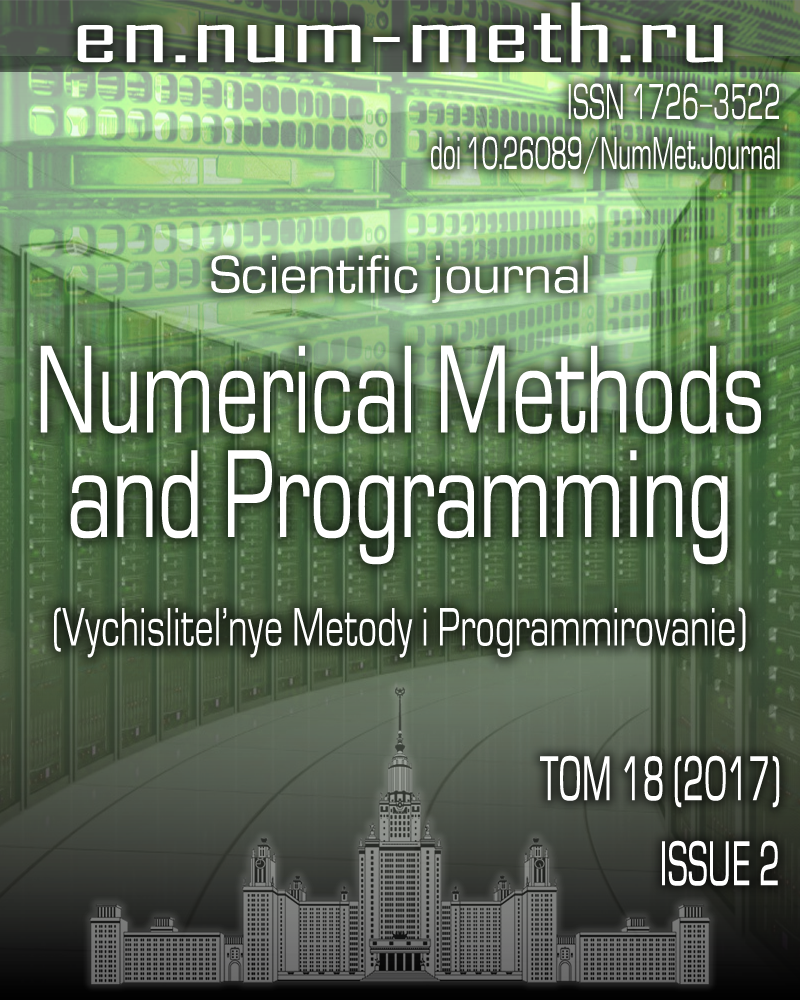DOI: https://doi.org/10.26089/NumMet.v18r209
A globally convergent method for finding zeros of integer functions of finite order
Keywords:
global convergence
logarithmic derivative
higher-order derivative
partial fractions
Cauchy–Hadamard formula
Abstract
A method for finding zeros of integer functions of finite order is proposed. This method converges to a root starting from an arbitrary initial point and, hence, is globally convergent. The method is based on a representation of higher-order derivatives of the logarithmic derivative as a sum of partial fractions and reduces the finding of a root to the choice of the minimum number from a finite set. The rate of convergence is estimated.
Published
2017-03-23
Issue
Section
Section 1. Numerical methods and applications
References
- A. N. Gromov, “An Approach for Constructing One-Point Iterative Methods for Solving Nonlinear Equations of One Variable,” Vychisl. Metody Programm. 16, 298-306 (2015).
- A. N. Gromov, “Increasing the Interval of Convergence for a Generalized Newton’s Method of Solving Nonlinear Equations,” Vychisl. Metody Programm. 17, 7-12 (2016).
- W. He and N. Prabhu, “A Globally Convergent Method for Finding Zeros of Smooth Functions,” Appl. Math. Comput. 133 (2-3), 327-335 (2002).
- I. S. Berezin and N. P. Zhidkov, Computing Methods (Nauka, Moscow, 1966; Oxford, Pergamon, 1965).
- E. A. Biberdorf, “A Criterion for the Dichotomy of Roots of a Polynomial on the Unit Circle,” Sib. Zh. Ind. Mat. 3 (1), 16-32 (2000).
- G. I. Malashonok and A. A. Betin, “Computing of Complex Roots of Polynomials,” Vestn. Tambov Univ., Ser.: Estestv. Tekh. Nauki 13 (1), 138-141 (2008).
- A. I. Markushevich, The Theory of Analytic Functions (Nauka, Moscow, 1967; Chelsea, New York, 1977).
License
Copyright (c) 2017 Вычислительные методы и программирование

This work is licensed under a Creative Commons Attribution 4.0 International License.

